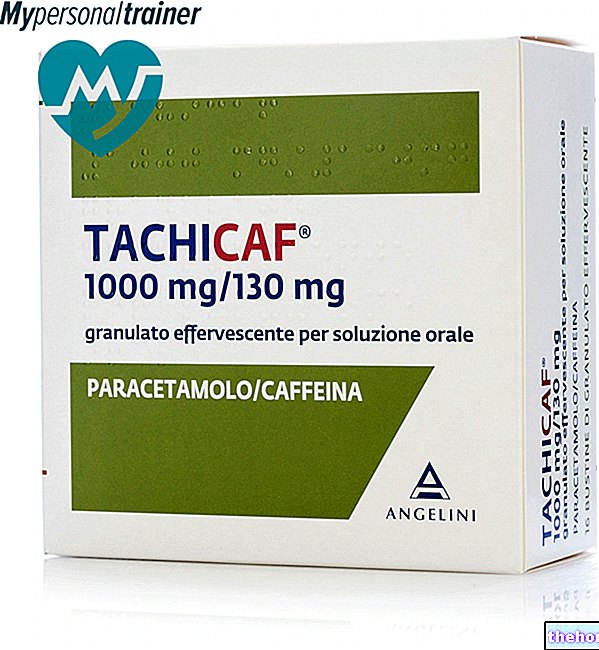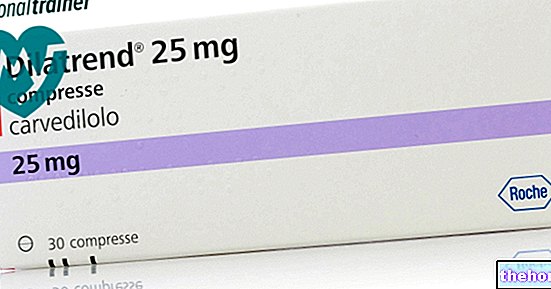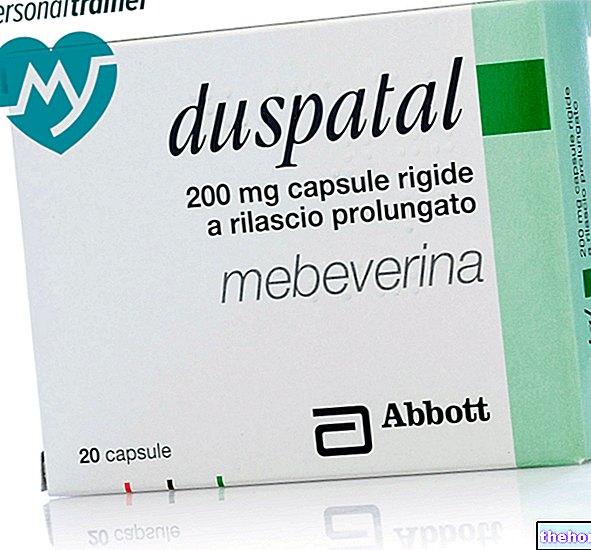Active ingredients: Acarbose
Acarphage 50 mg tablets
Acarphage 100 mg tablets
Why is Acarphage used? What is it for?
The active substance in this medicine is acarbose, which belongs to a group of medicines called alpha-glucosidase inhibitors. It is used to treat adult patients with non-insulin-dependent diabetes mellitus (type 2 diabetes). Acarphage is indicated in adults and adolescents over 18 years of age. Your doctor may prescribe Acarphage when diet and exercise alone or in combination with other antidiabetic medicines (metformin, sulphonylurea or insulin) are not sufficient to control blood glucose levels. Acarphage works by slowing down the digestion of carbohydrates (complex sugars) after each meal, thereby reducing the blood glucose level.
Contraindications When Acarphage should not be used
Do not take Acarphage:
- if you are allergic to acarbose or any of the other ingredients of this medicine.
- if you have a chronic intestinal disease that causes digestive problems or food malabsorption.
- if you have a disease that can be aggravated by an increase in the production of gas in the intestine, such as Roemheld's syndrome, large intestinal hernias, intestinal obstruction.
- if you suffer from inflammation or ulceration of the intestine,
- if you have a "bowel obstruction or are likely to have one,
- if you have severe kidney failure.
- if you suffer from severe hepatic insufficiency
Precautions for use What you need to know before taking Acarphage
Talk to your doctor, pharmacist or nurse before taking Acarphage if the following conditions are present.
- If you suffer from hypoglycaemia. Hypoglycemia means that the amount of glucose in the blood is not enough. This can make you feel tired, nervous, weak, and can cause a fast heartbeat, cold sweats, or hunger cramps. If blood glucose levels continue to drop, it can lead to excessive confusion (delirium), brain seizures, loss of control, shortness of breath and decreased heart rate, leading to loss of consciousness. In most cases the signs of hypoglycemia disappear very quickly when you ingest glucose (grape sugar) but not sucrose (brown sugar) or artificial sweeteners. Acarphage delays the absorption of sucrose. Therefore sucrose is not suitable for the immediate treatment of hypoglycemia.
- In very rare cases, intestinal blockage has been reported in patients taking Acarphage. If you suspect that you have an intestinal blockage you should contact your doctor or the nearest hospital immediately.
- If you have had a gastric resection it is possible that Acarphage works faster. This is unlikely to cause you any problems, but if you feel unwell after taking Acarphage you should contact your doctor.
- You must regularly check your blood and urine glucose levels.
- As Acarphage can very rarely cause an increase in the level of liver enzymes in the blood, even without any signs, your doctor may need to check liver function regularly, especially during the first 6 to 12 months of therapy. Your doctor may decide to reduce the dose or stop treatment with Acarphage.
- You should continue to follow all dietary advice given by your doctor and take carbohydrates regularly throughout the day.
Children and adolescents
As there is still insufficient information available on the effects and tolerability of Acarphage in children and adolescents below 18 years of age, Acarphage is not recommended in patients below 18 years of age.
Interactions Which drugs or foods may change the effect of Acarphage
Tell your doctor or pharmacist if you are taking, have recently taken or might take any other medicines.
Acarphage can alter the effect of other medicines or, conversely, some medicines can alter the effect of Acarphage:
- other antidiabetic medicines eg. insulin, metformin, sulfonylureas; the dosage of these drugs may need to be adjusted
- absorbents of intestinal gases eg. charcoal
- medicines used to aid digestion (including antacids, amylase, pancreatin)
- medicines used to lower cholesterol level (cholestyramine)
- digoxin (medicines to treat heart failure)
- medicines to treat high blood pressure or to prevent water retention (thiazide and diuretics)
- anti-inflammatory medicines (corticosteroids)
- thyroid medicines
- female sex hormones (estrogen), oral contraceptives
- medicines to treat spasms or schizophrenia (phenytoin, phenothiazines)
- medicines to decrease high blood fat levels (nicotinic acid)
- medicines used to treat high blood pressure or heart problems (calcium channel blockers)
- medicines to increase heart rate (sympathomimetics)
- medicines to treat tuberculosis (isoniazid)
- neomycin, an antibiotic
Acarphage with food and drink
Sucrose (brown sugar) and foods containing sucrose often cause intestinal upset or even diarrhea, due to the fermentation of carbohydrates in the colon during treatment with Acarphage.
Warnings It is important to know that:
Pregnancy and breastfeeding
If you are pregnant or breast-feeding, think you may be pregnant or are planning to have a baby, ask your doctor or pharmacist for advice before taking this medicine.
Do not take Acarphage if you are pregnant or breastfeeding.
There are no data on the use of Acarphage during pregnancy.
Small amounts of Acarphage are excreted in the milk of lactating animals. There are no data on the excretion of Acarphage in human milk.
Driving and using machines
Taking Acarphage alone (monotherapy) does not lower blood glucose levels (hypoglycaemia) and therefore does not affect the ability to drive or use machines.
Taking Acarphage concomitantly with medicines such as sulphonylurea, insulin or metformin to treat diabetes can cause hypoglycaemia and thus impair the ability to drive and use machinery or work safely.
Dose, Method and Time of Administration How to use Acarphage: Posology
Always take this medicine exactly as your doctor has told you. If in doubt, consult your doctor or pharmacist.
Unless otherwise prescribed, the recommended dose is:
Adults:
Take one Acarphage 50 mg tablet three times a day (corresponding to 150 mg daily).
To reduce the likelihood of stomach problems, some patients may start with one Acarphage 50 mg tablet once or twice a day (corresponding to 50 mg to 100 mg daily). Your doctor may slowly increase the dose if needed up to 2 Acarphage 50 mg tablets or 1 Acarphage 100 mg tablet three times a day (corresponding to 300 mg daily). Acarphage is suitable for long-term treatment.
Use in children under the age of 18:
Acarphage is not recommended in patients under the age of 18.
Method of administration
Swallow the tablets whole with a glass of water immediately before a meal or chew them with the first bite of food.
The score line on the 50 mg tablets is only to help you break the tablet if you have difficulty swallowing it whole.
The 100 mg tablet can be divided into equal parts.
If you forget to take Acarphage
Do not take a double dose to make up for a forgotten tablet. Take the next dose with the following meal.
If you stop taking Acarphage
If you suddenly stop taking Acarphage, your blood glucose level may rise.
Consult your doctor before stopping treatment.
If you have any further questions on the use of this medicine, ask your doctor or pharmacist.
Overdose What to do if you have taken an overdose of Acarphage
If you take more Acarphage than you should, you may notice side effects such as excessive flatulence and diarrhea if you have taken Acarphage together with carbohydrate-containing drinks or food. In this case, do not eat or drink any food or drink containing carbohydrates for 4-6 hours. Go to your doctor or the nearest hospital immediately. Take the container and any remaining tablets with you.
Side Effects What are the side effects of Acarphage
Like all medicines, this medicine can cause side effects, although not everybody gets them.
If you think you are having any of the following side effects, stop taking the medicine and contact your doctor immediately or go to the nearest hospital emergency room:
- yellowing of the whites of the eyes or skin (jaundice), (rare, may affect up to 1 in 1,000 people)
- inflammation of the liver (hepatitis), (frequency cannot be estimated from the available data)
- loss of bowel activity, sluggish bowel, intestinal obstruction (ileus), (frequency cannot be estimated from the available data)
The evaluation of undesirable effects is based on the following frequency of occurrence:
Very common (may affect more than 1 in 10 people)
- flatulence
- bloated feeling
- rumbling in the stomach
Common side effects (may affect up to 1 in 10 people)
- stomach pain or abdominal pain
- diarrhea
These side effects occur more frequently after a meal containing sugar (sucrose). Symptoms can be reduced by avoiding the ingestion of foods and drinks containing sugar (sucrose, cane sugar). If the diarrhea does not disappear, the doctor may reduce the dose or in some cases stop the treatment. Do not take remedies against the "indigestion to relieve side effects as this can make symptoms worse.
Uncommon side effects (may affect up to 1 in 100 people)
- feeling sick (nausea)
- indigestion
- being sick (vomiting)
- increase in liver enzymes (transaminases) in the blood
Rare (may affect up to 1 in 1,000 people)
- swelling of the skin (edema)
Not known (frequency cannot be estimated from the available data)
- allergic skin reactions, eg. redness, rash or hives, rashes
- low platelet count which can make you bleed or bruise more easily
- constipation
- gas pockets in the intestinal wall (intestinal cystoid pneumatosis)
- rash with pus-filled boils / blisters (acute generalized exanthematous pustulosis)
In addition, undesirable effects such as liver disease, abnormal liver function and liver injury have been reported, especially in Japan. Individual cases of fulminant liver failure have been reported in Japan, however the role of acarbose is unclear.
If you get any side effects, talk to your doctor or pharmacist. This includes any possible side effects not listed in this leaflet.
Expiry and Retention
- Keep this medicine out of the sight and reach of children.
- Do not use this medicine after the expiry date which is stated on the carton and blister after EXP. The expiry date refers to the last day of that month.
- Do not store above 25ºC. Store in the original package to protect from moisture.
- Do not throw any medicines via wastewater or household waste. Ask your pharmacist how to throw away medicines you no longer use. This will help protect the environment.
Other information
What Acarphage tablets contain
The active ingredient is acarbose. Each tablet contains 50 mg or 100 mg of acarbose.
The other ingredients are microcrystalline cellulose (E460), maize starch, anhydrous colloidal silica (E551) and magnesium stearate (E572).
What Acarphage tablets look like and contents of the pack
The medicine looks like a white round tablet.
Acarphage 50 mg tablets are marked "AA" (score line) "50" on one side and "G" on the back.
Acarphage 100 mg tablets are marked "AA" (score line) "100" on one side and "G" on the back.
Acarphage is available in blisters of 20, 21, 30, 40, 50, 90, 100, 105, 120 and 180 tablets.
Not all pack sizes may be marketed.
Source Package Leaflet: AIFA (Italian Medicines Agency). Content published in January 2016. The information present may not be up-to-date.
To have access to the most up-to-date version, it is advisable to access the AIFA (Italian Medicines Agency) website. Disclaimer and useful information.




























